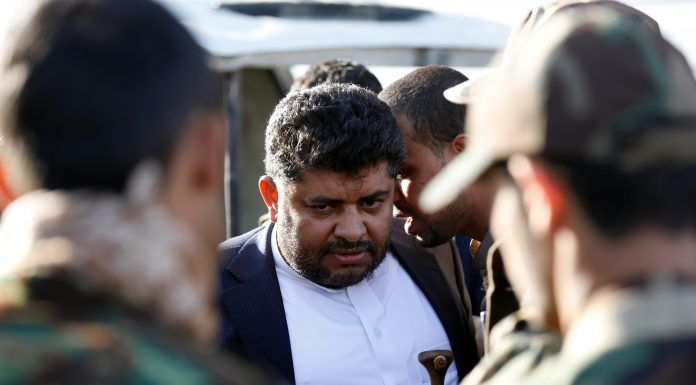By Aziz El Yaakoubi
DUBAI, May 26 (Reuters) – A leader of Yemen’s Iran-aligned Houthi movement said on Sunday it had resumed drone strikes deep inside Saudi Arabia this month in response to what he called the Saudi-led coalition’s spurning of “peace initiatives” by his group.
Mohammed Ali al-Houthi dismissed Saudi accusations that the attacks had been carried out on the orders on Iran – at a time of growing tension between Tehran and Riyadh alongside its Western and regional allies.
“We are independent in our decisions and … we are not subordinated to anyone,” al-Houthi told Reuters by phone.
Saudi Arabia, leading a Western-backed Sunni Muslim coalition, intervened in neighbouring Yemen in 2015 after the Houthis ousted the government of Abd-Rabbu Mansour Hadi from power in the capital Sanaa.
The Houthis have stepped up attacks on the kingdom in the past two weeks – including a drone strike on two oil pumping stations near Riyadh – in a resurgence of tactics that had largely subsided since late last year amid U.N.-led peace efforts.
In the first statement on the attacks from a senior figure, al-Houthi told Reuters the movement had agreed to halt raids last year “in good faith” and had been ready to take more steps.
“But unfortunately the aggressor countries misinterpreted these efforts (as weakness) and regarded them with contempt and indifference,” al-Houthi, the head of the group’s Supreme Revolutionary Committee, added.
He said the Houthis had unilaterally withdrawn from three Red Sea ports and he accused the Saudi-led coalition of failing to reciprocate.
There was no immediate reaction to his statement from Riyadh which has not yet recognised the port pull-out.
Saudi state media reported that the kingdom had on Sunday intercepted another missile armed with explosives that it said had been fired by the Houthis towards the southern airport of Jizan.
The coalition has responded to the renewed drone attacks with air strikes on Houthi military sites in Sanaa.
The Houthis, who still hold the main urban centres, say their revolution is against corruption and have long rejected reports that they are acting as Iran’s proxy against Saudi Arabia.
The war has killed tens of thousands of people and pushed the poorest Arabian Peninsula nation to the brink of famine.
(Editing by Andrew Heavens)


